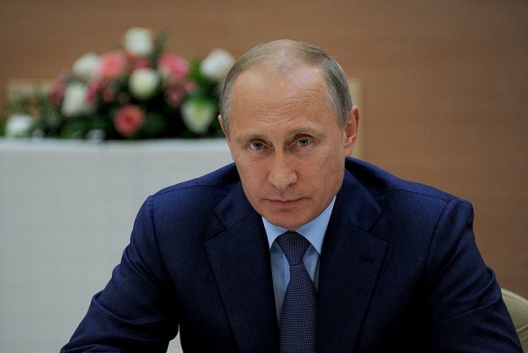 “[T]he squeeze on the Baltics stems not from any real interest in the fate of expatriate Russians—a matter that Moscow systematically ignores in most countries. The Kremlin aim is to demoralize the countries by showing weak Western resolve.”
“[T]he squeeze on the Baltics stems not from any real interest in the fate of expatriate Russians—a matter that Moscow systematically ignores in most countries. The Kremlin aim is to demoralize the countries by showing weak Western resolve.”
So far, President Putin is succeeding. NATO is slowly and belatedly getting used to the idea that it must deal with territorial defense against a Russian threat. In a year or so, the alliance may have a rapid-reaction force, able to reinforce Estonia, Latvia and Lithuania in a crisis. But NATO is hamstrung. Most members do not spend enough on defense, and some of the oldest members—France, Italy and Germany, in particular—believe that even defensive moves against Russia are “provocative.”
Meanwhile, Russia is rearming fast. Its military plans involve the early use of battlefield nuclear weapons—something that is a serious taboo for most NATO members.
NATO’s biggest problem is that it is configured to wage the wrong kind of war. Russia doesn’t fight according to conventional military timetables. It softens up countries that it wants to dominate, using confusing, unpredictable tactics, with an approach that military experts dub “hybrid warfare.” This includes trade sanctions, energy cutoffs (the Baltic states import all of their natural gas from Russia), propaganda, cyberattacks, the targeted use of organized crime, corruption of politicians—and the incitement of ethnic grievances.
NATO and the West aren’t set up to deal with these threats, which also come with a dose of maskirovka, a word for camouflage and thus a broad program of military deception. The Soviet Union excelled at this, but modern Russia has taken it to a new level.
Its central feature is deniability. Cutting off the gas? A purely business decision. Cyberattack? Patriotic Russian hackers are acting on their own initiative. Propaganda? Russian editors make their own decisions. And those tough, soldierly men stoking ethnic discontent? Who knows—perhaps they choose to spend their vacation that way.
Such tactics could all too easily destabilize one or more of the Baltic states, forcing a change in government and destroying collective security in Europe forever. Yet so far NATO’s placid political masters show no sign of willingness to forestall the looming disaster.
Mr. Lucas is the author of “The New Cold War: Putin’s Russia and the Threat to the West” (Palgrave Macmillan, 2014, revised edition).
Image: Russian President Vladimir Putin, Sept. 19, 2014 (photo: Office of the President of Russia)
